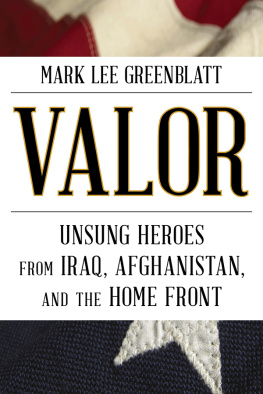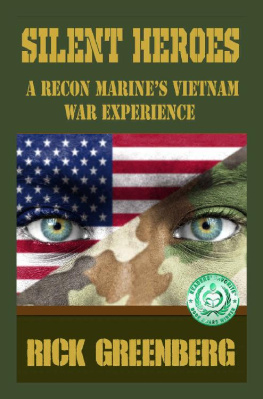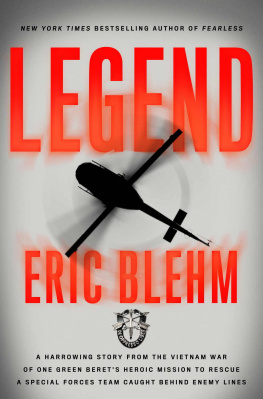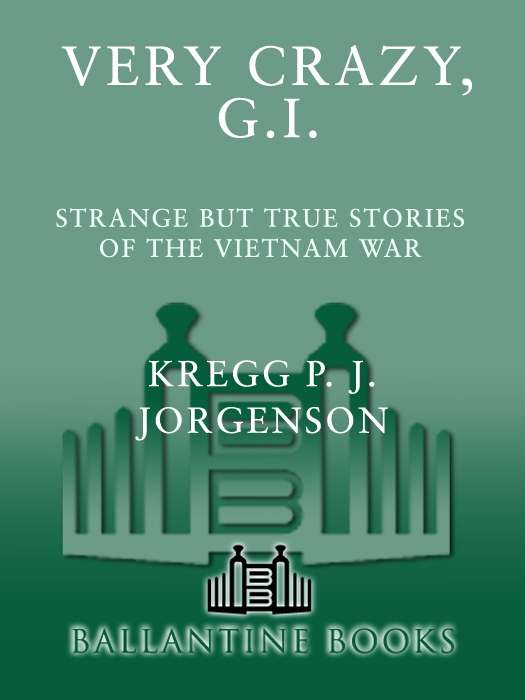THE STAKES OF THIS NO-NAME BATTLE WERE SIMPLE. WIN OR DIE.
Hooper tossed in a grenade and then scrambled to the next enemy bunker in line, repeating the process before moving on to a third. One by one, the grenades blew behind him.
Rising black clouds of debris, swirling dirt, and an invisible wave of intense heat from the explosions followed him as he ran, the glowing splinters of metal fragments from secondary explosions tearing into his back and legs. Small holes and spreading rosettes of blood mottled his jungle fatigues. The pain spread like needles in his brain. Where the shrapnel didnt penetrate his skin, it burned red welts.
Hooper was a mess. He was covered with dirt, soot from the gunsmoke, and his and others blood. Still, charging forward, Hooper looked like a demon. The fighting was growing more hectic and confusing, and the NVA soldiers were charging out to attack, only to be cut down short of their intended targetsmost of the time.
In other moments, grisly hand-to-hand combat scenes were being played out in grunting, swearing, life-and-death struggles.
By Kregg P. J. Jorgenson
ACCEPTABLE LOSS: An Infantry Soldiers Perspective
MIA RESCUE: LRRPs in Cambodia
LRRP COMPANY COMMAND: The Cavs LRP/Rangers in Vietnam, 19681969
VERY CRAZY, G.I.: Strange but True Stories of the Vietnam War
Books published by The Random House Publishing Group are available at quantity discounts on bulk purchases for premium, educational, fund-raising, and special sales use. For details, please call 1-800-733-3000.
To Doc L. Wayne Ball, a veteran of the war stories and medic for their casualties, with thanks for the service and the belief that the stories matter.
There are more things in heaven and earth, Horatio, than are dreamt of in your philosophy.
W ILLIAM S HAKESPEARE
ACKNOWLEDGMENTS
Id like to thank or acknowledge the following people for their contributions to this project: the late Joe Hooper, for his service in Vietnam and his service with the Veterans Administration in Seattle, Washington. Besides his official duties, in the seventies, Hooper spoke to many service groups, schools, and colleges in the Pacific Northwest and, although he wasnt always well received during those difficult times, the quiet, unassuming veteran offered his unique insight and reflections on a war that a nation no longer had time for. Over coffee, Joe Hooper was often candid but never boastful. His story has been re-created from the official record, the recollections of several of his close friends, a Stars and Stripes newspaper account, and from comments by Hooper himself.
In this regard, I also need to thank Gary Linderer, executive editor at Behind the Lines magazine, for his help in tracking down both the official and unofficial record of Sgt. Joe Hooper, and for the introduction to Derby Jones and Rey Martinez, friends of Hooper, who provided a personal view and human side to one of the nations most decorated and forgotten heroes. I also have to give a nod to my brother, Keith B. Jorgenson, who provided his own insight to Hooper from their extensive conversations at Highline Community College.
Thanks also go to retired Marine Sgt. Maj. James P. Henderson for his input on the United States Marine Corps and his special-flavor war stories. Hendersons colorful accounts and commentary might cause a few of the more timid readers to pause or even blush, but they offer a realistic view of the war that words like darn and shucks just dont convey. Hendersons delivery only adds to the telling. Im proud to be in his company. Former Marine Luis Sanchez also gets a loud Semper fi for his help, as do several other former Leathernecks who prefer to remain anonymous.
From the Veterans of Foreign Wars, Chapter 2886, in Federal Way, Washington, Id like to salute Richard Keeton, Don Hulslander, Darrell Pilat, Greg Westmiller, and the rest of the members, for their stories, their service and sincerity, and of course, their coffee. These are veterans who continue to aid their service organization and communities with admirable effort and commitment.
One of the more unique sightings of something unusual during the war comes from Craig Thompson of Olympia, Washington. Thompson, a former paratrooper with the 173d Airborne, provided not only the story but interesting proof.
For the air force assistance, I thank Ron Jacobson and J. Patrick Kelly, who provided technical data on B-52s and their payloads and things that fly in general, how they fly, and why theyre always good to have on your side in a conflict.
I need to acknowledge the late John Sarten, who was a genuine character, for his encouragement over the years. I suspect that everyone who had the pleasure of knowing him enjoyed his wit, wisdom, and abundant humor. The rascally old retired navy chief petty officer was a true storyteller and is sorely missed.
From the Vietnam Veterans of America, Chapter 318 of Albuquerque, New Mexico, thanks specifically to the late Doug Cochrane for his assistance concerning his brother, Deverton. Former 1st Cav LRRP/Ranger Frank Duggan gets a nod too for offering the irony to the account Namesake. Duggan now makes his home in the Virgin Islands, where he proudly displays his 75th Ranger Scroll over the bar in his restaurant, Duggans Reef.
Thanks, too, go to David Willson (author of The REMF and The REMF Revisited) for his perspective and his work educating college students on the subject of the Vietnam war. Willson teaches several courses, including one relating to the war and the media. He frequently hosts forums for Vietnam veteran writers, and if there is a more well-read veteran, anywhere, on the subject of the Vietnam War, he or she will find Willson a fellow scholar.
Id like to thank Bill McIntosh, a former scout pilot with the 1st of the 9th Cav (1st Air Cavalry Division), for his contribution. Mini-Mac was a remarkable pilot whose war story takes place on the ground.
I need to thank Rangers Robert Edward Beal, Grover Gene Sprague, Bob Moose McClure, Danny Pope, Kenn Miller, Riley Dozer Cox and his wife Linda, James W. Limey Walker, Cmd. Sgt. Maj. (ret.) Tony Cortez; Special Forces veterans Raymond Garofalo, Sgt. Maj. (ret.) John Larsen, and so many others who gave so much with no expectation in return. Finally, I need to thank my wife, Katherine, for her patience and the support needed to complete this project. In the hubbub and confusion, Im sure Ive overlooked others who were equally helpful with this project, and for this oversight, I apologize and offer my sincere appreciation.
PREFACE
Beaucoup dinky dau is a slang G.I. expression, a bastardization of French and Vietnamese, that American G.I.s during the Vietnam War knew meant very crazy, a term that I think most readers will agree is appropriate for the things that occur in this collection of unusual stories and oddities.








